Review: Universal Audio Volt 476P Audio Interface
Univeral Audio's Volt 476P is a fantastic audio interface.
The Universal Audio Volt 476P represents the pinnacle of UA’s affordable Volt line of audio interfaces. It certainly looks the business but does it live up to the famous Universal Audio name? Read on to find out…
Universal Audio Volt 476P
Universal Audio has a stellar pedigree in audio recording. First established in 1958, the company was reformed by the sons of the original owner in 1999. Perhaps now best known for its Apollo line of professional audio interfaces, UA has joined the ranks of other audio companies like Focusrite and SSL and now makes audio interfaces aimed at the lower end of the market. Called Volt, the series offers UA-quality sound at prices that anyone can afford.
At the top of the Volt line is the 476P, a four-in/six-out audio interface. It may not have a whole lot of bells and whistles—what you see is what you get—but the true test of an audio interface is not in what you see but in what you hear. But more on that soon.
Design
Like the other units in the Volt line, the 476P is a desktop audio interface. With its aluminium casing and wooden sides, it looks more like a stereo component from the 1970s than a modern piece of studio gear. How you may feel about that depends on your aesthetics, but as a child of the ‘70s, I absolutely love it. I’m a firm believer that appearance can be inspiring, and just having this in my studio makes me want to do some music.
I also appreciate the tidy layout. The knobs are big and chunky and easy to grab, the panel uncluttered and spacious. The LED input and output graphs are visible and convenient. The build quality is nice as well; it’s reassuringly weighty without being heavy. There are no concerns of it flying across your studio desk.
Connectivity
As the biggest brother in the Volt family, the 476P has the most connectivity. Up front are four combo microphone and instrument jacks, accepting XLR, TS and TRS cables. Hit the INST button to provide a Hi-Z boost for guitars and other low-level instruments. The front panel also features two headphone outs with individual volume pots, handy to have when tracking vocals, for example.
Connectivity continues around the back. There are four analogue outs plus two additional monitor jacks for speakers. MIDI in/out completes the package. MIDI is particularly nice to have.
Lastly, all of the Volt interfaces are USB-C bus-powered, meaning they can draw current via USB from your computer. If you have an iPhone or iPad and a USB to lightning adapter, you can use your Volt as an interface for your iOS device, although you will need to use the supplied power adapter for this.
Operation
Connectivity aside, what else is on the front panel? Along with the volume knobs (one for each input, headphone out and the main volume knob), there are plenty of buttons. These are clear plastic with colour-coded LEDs inside to make them easily understandable even in dark lighting.
Above the input jacks sits a single 48V button for microphone phantom power. This one glows red to differentiate it from the green-hued INST buttons.
Up top, each input gets a Vintage and 76 Compressor button (more on these later). Additionally, there’s an extensive set of buttons for selecting the monitor source. Monitoring is latency-free and worked well. It would be nice to be able to send separate channels to each of the headphone outs, especially when tracking instruments and vocals, but it doesn’t seem to be possible. Lastly, there’s a Mono button to sum stereo input pairs in the monitors.
Vintage And Compression
Now, about those Vintage and 76 Compressor buttons. It’s common for companies with high-end product lines to include some of their fancy tech in their consumer-grade offerings. Universal Audio give you two such extras, Vintage emulation on the microphone preamps and 1176-style analogue compression.
The mic pres are lovely on the Volt 476P, clear and transparent and a coup at this price range. For something a little more vibey, you can engage the Vintage button, which adds tube-emulated saturation based on the company’s famous 610 preamp.
One of the most coveted compressors in existence is Universal Audio’s 1176 Peak Limiter. UA has taken this analogue circuitry and stuck it in the 476P (the 76 in the name is a nod to this). While you don’t get access to the compressor’s controls, there are three presets, which you can toggle through with the 76 Compressor button. These are vocal, guitar and fast. A look at the specifications reveals these all have a ratio of 6:1 with varying attack and release speeds depending on the characteristics of the preset.
Sound
As you’d expect from a company that has made some of the most important gear in the history of audio recording, UA’s Volt 476P sounds lovely. Sure, the converters can handle up to 192kHz/24-bit, but it’s the quality of the sound that really matters.
The mic pres, as previously stated, are gorgeous, with the Vintage emulation adding a nice warmth. The compressor is the real deal, injecting life and power into the input signal resulting in a roundness and presence you won’t get with other entry-level interfaces.
I had a blast recording my Roland Alpha Juno-2, trying it out first clean, then with Vintage (yes, this works on non-vocal material too) and finally with the compressor. It works a treat on drums too.
Limitations
Although I appreciate the ease of use, some may find the lack of accompanying routing software a dealbreaker. While it’s easy to enough to make any necessary routings in your DAW (and Ableton Live Lite is included in the bundled software), I can’t help but feel that some kind of software options wouldn’t be remiss. Not having loopback capabilities could be hard on podcasters especially.
Expandability is also conspicuously absent. There’s no S/PDIF or ADAT connectivity, meaning you can’t grow beyond the 476P without buying a new interface.
Who Is It For?
UA’s Volt 476P is for anyone who needs to record larger projects simultaneously. Maybe you have a studio with a lot of outboard gear, or you want to track multiple members of your band at the same time. This can do it.
UA is also pitching this to beginners. The UA Connect software makes it easy to get up and running quickly and also offers helpful video tutorials. There’s also a nice selection of free software from third parties (like the previously mentioned Live Lite).
Podcasters could also find it useful, although the lack of loopback capabilities means you’ll need to find another software solution for this.
If you want the UA sound but don’t need so many ins and outs, check out the Volt 176, 276 and 476. They all have the Vintage emulation plus compressor circuit. Straying outside of the realm of UA, there’s Focusrite’s Scarlett 8i6, which has similar connectivity specs and is quite a bit less, although it doesn’t sound as present. For the same price as the Volt 476P, you can get Audient’s EVO 16, which has eight ins and outs.
Conclusion
For me, Universal Audio’s Volt 476P comes up trumps because of the sound. It not only sounds good, it’s creatively inspiring. It actively makes me want to record more. That’s all due to UA’s decades of audio experience.
Beginners will love the ease of use. Being able to record four sources at once can be extremely convenient when working with a band or when podcasting. The on-panel monitor routing makes keeping track of all this easy as well.
The Volt 476P may not be the most feature-packed audio interface on the market but it gets the job done in a no-muss, no-fuss way. And with sound this good (and at such a low price), I could even see using it as a second interface in conjunction with another. Where else can you get access to an 1176 compressor for this price?

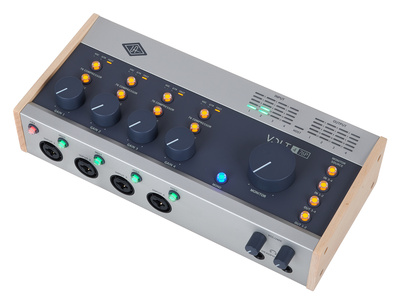
You are currently viewing a placeholder content from YouTube. To access the actual content, click the button below. Please note that doing so will share data with third-party providers.
You are currently viewing a placeholder content from YouTube. To access the actual content, click the button below. Please note that doing so will share data with third-party providers.
One response to “Review: Universal Audio Volt 476P Audio Interface”

 4,4 / 5,0 |
4,4 / 5,0 | 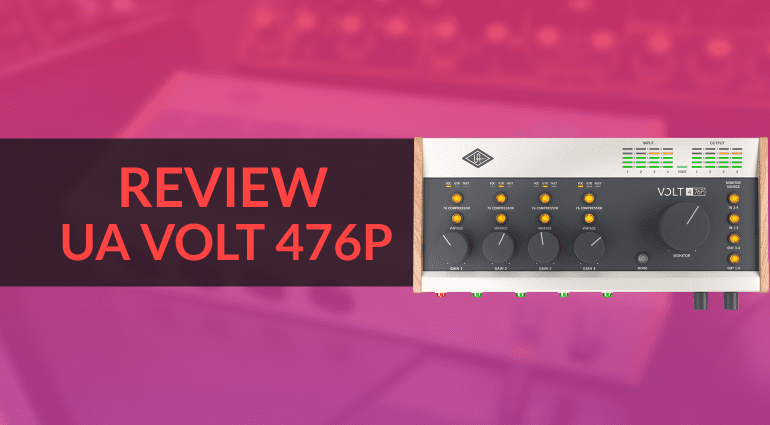

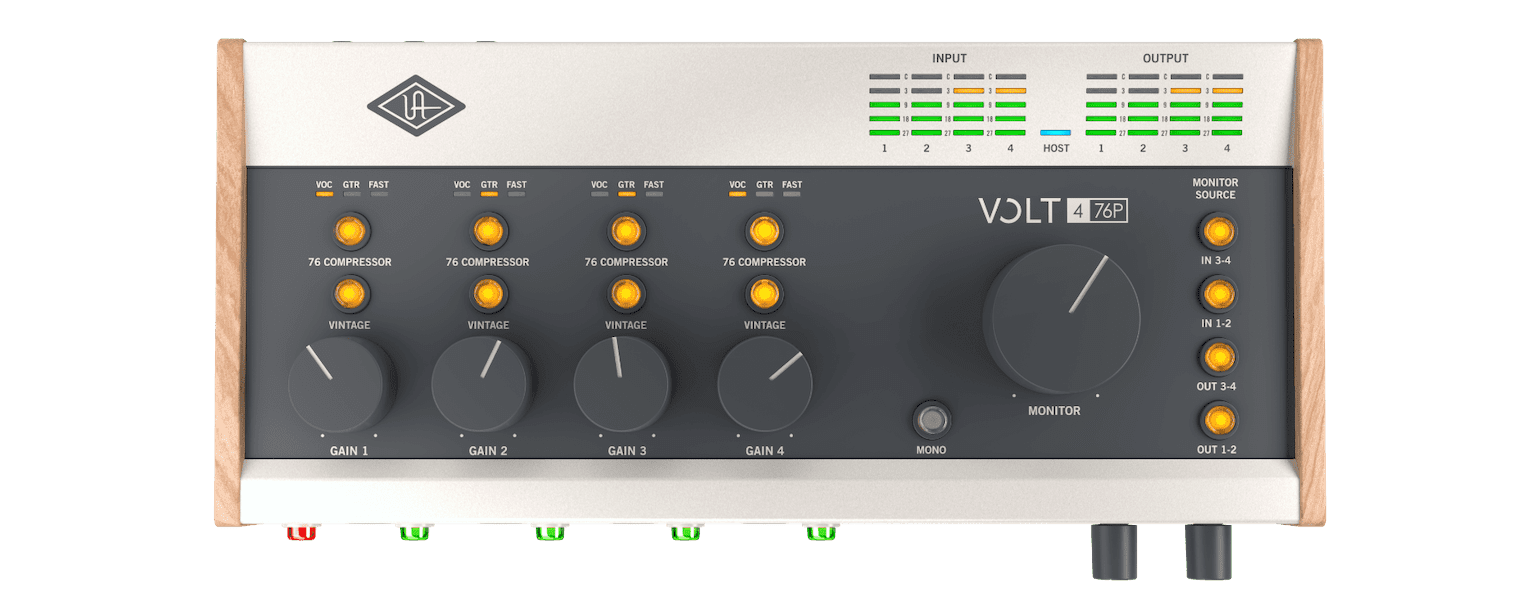


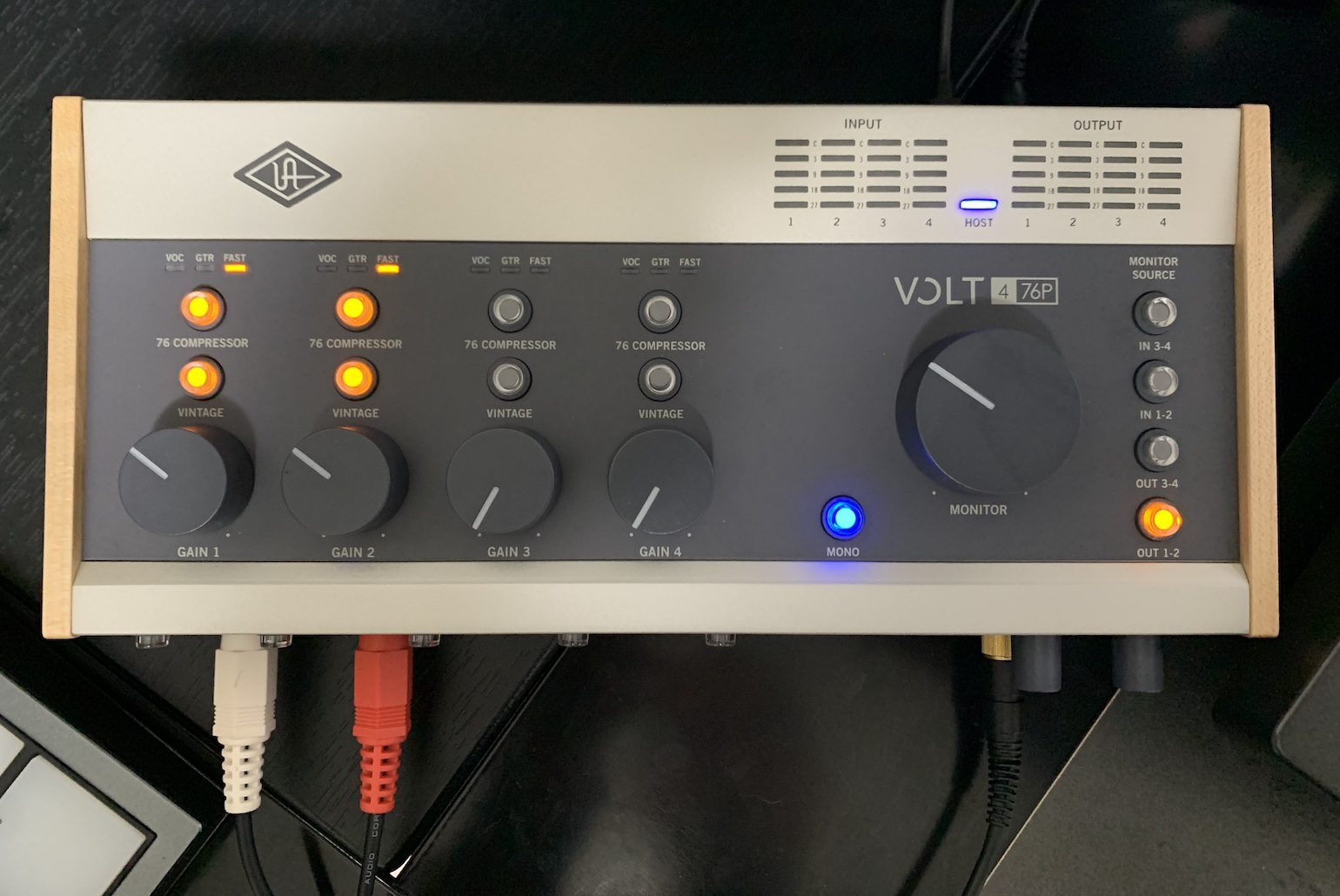
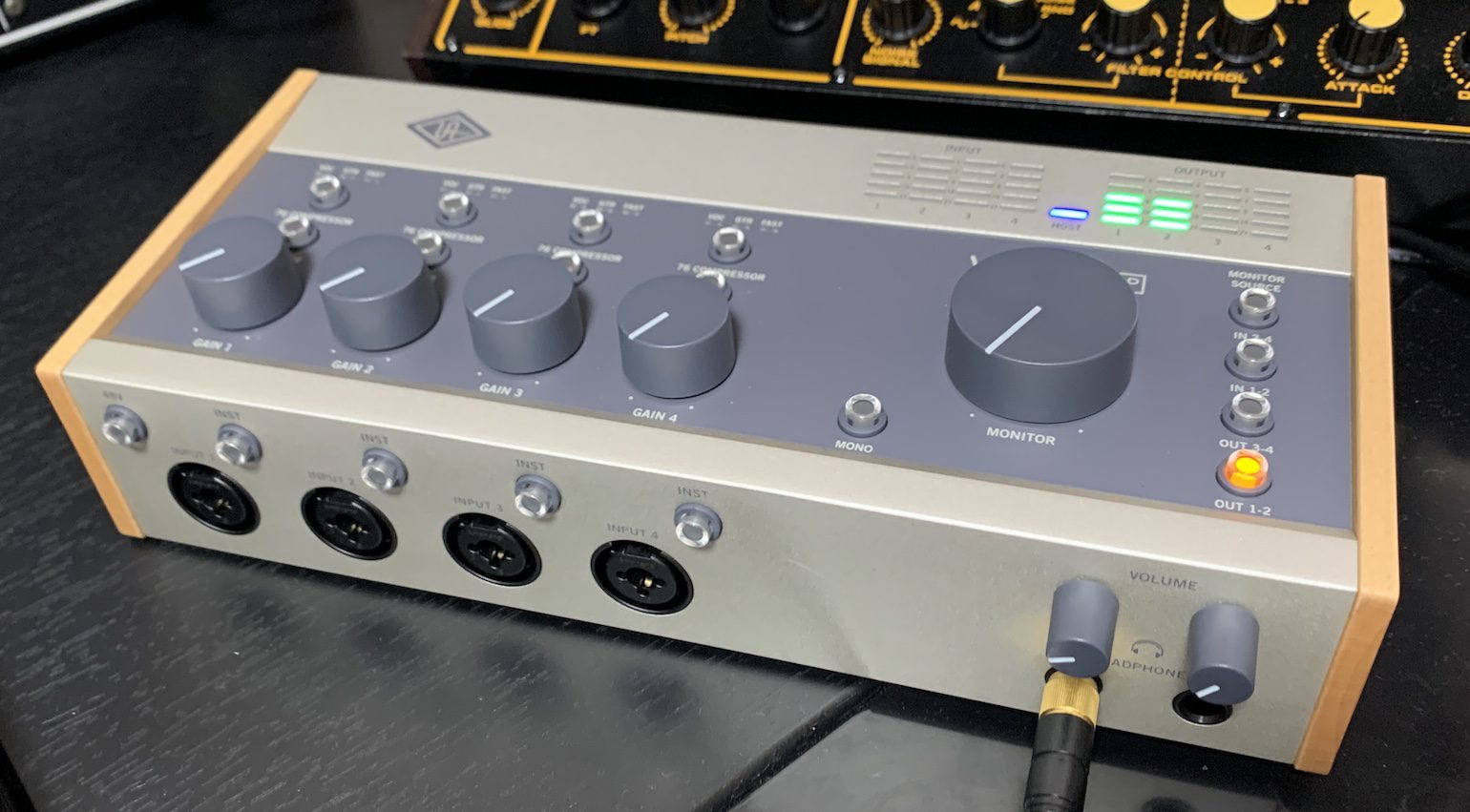
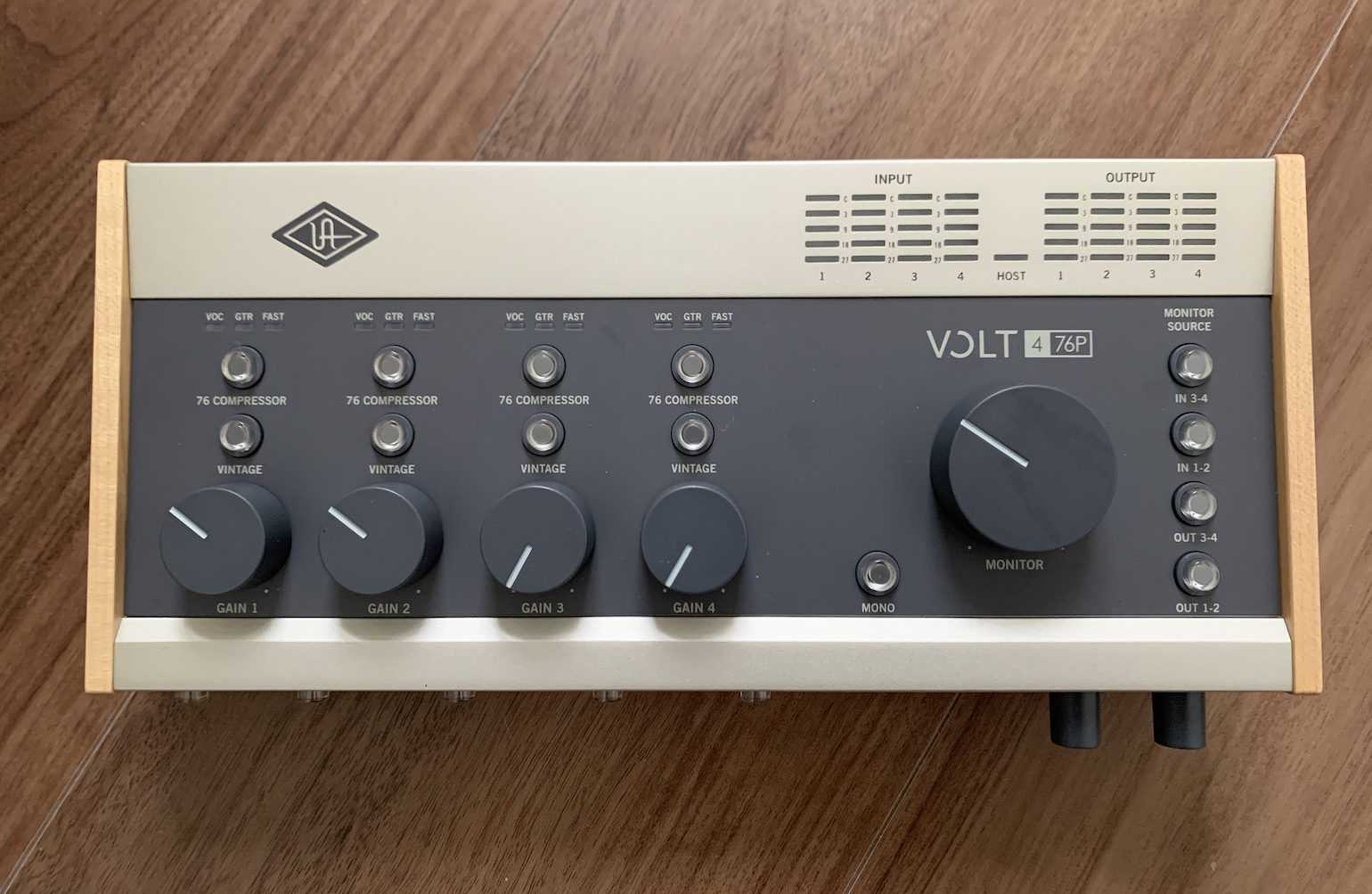

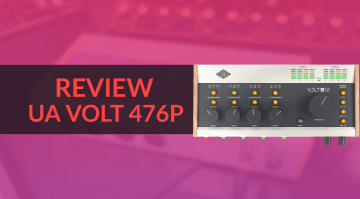

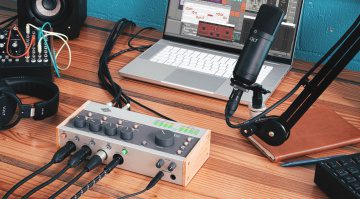
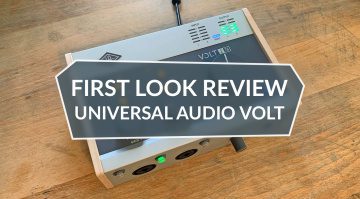
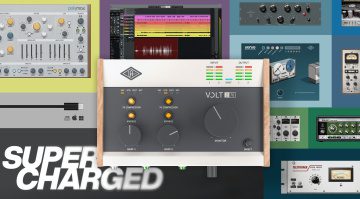
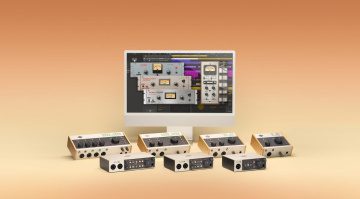

Is the monitoring stereo on this unit? Some of the less expensive interfaces have mono monitoring.
I’m not a fan of routing software, so no software is a plus for me. But I am a fan of aux sends and modern interfaces are lacking so I stick with a mixer.
Sometimes I want a simple in/out, though. This looks good for that.
Thanks for the review, I’ve been curious.